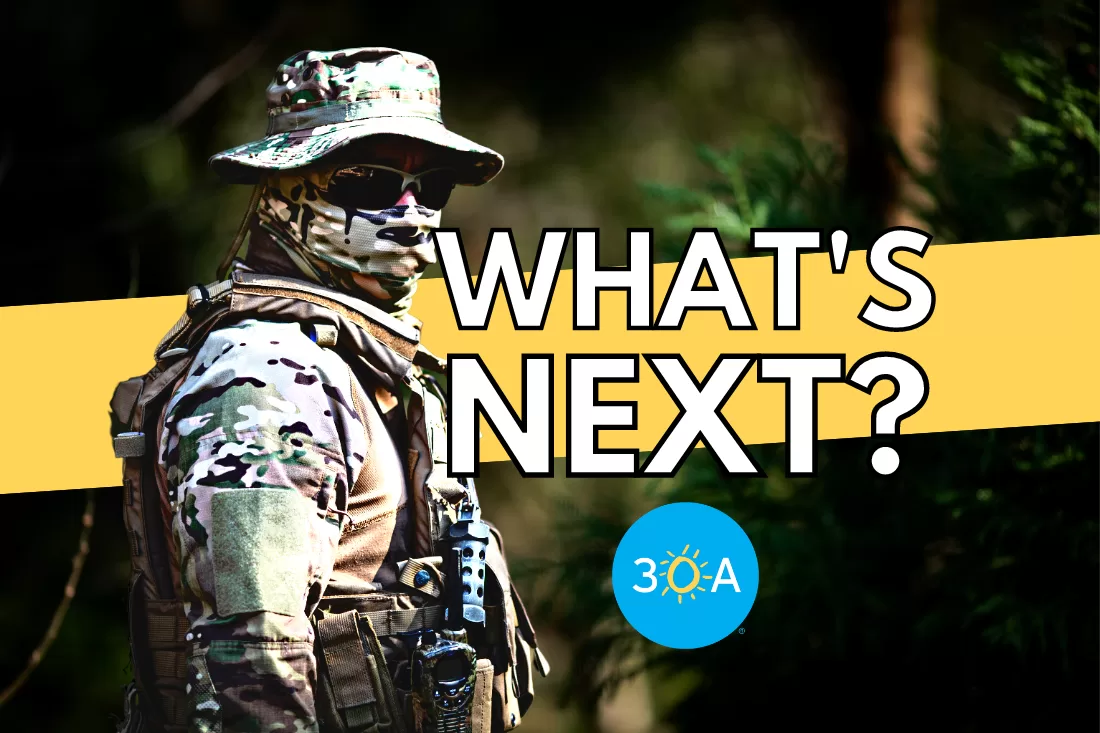Special Operators Transition Foundation: Helping Veterans Transition into Civilian Workforce
SOTF works to help ensure operators enjoy a positive transition from the military to their new careers.
SOTF works to help ensure operators enjoy a positive transition from the military to their new careers.

Amongst the more than two million men and women serving in America’s armed forces, there are 15,000 ‘special operators’ – those who are carefully assessed and selected to become members of Special Operations.
This elite military personnel is spread across the Navy, Air Force, Army, and Marines and located at bases and installations around the world, including Northwest Florida’s Eglin and Hulbert Field air force bases.
They are deployed to deal with those situations which call for unconventional warfare; deep behind enemy lines, dealing with counterterrorism, or staging rapid strikes and ambushes.
“These patriots are amongst some of the most dedicated and well-trained operatives anywhere in the world, not just in the military,” said Bobby Payne, a 21-year Air Force veteran and now Development Director for the Special Operators Transition Foundation (SOTF) a 501c-3 charitable organization that works to help ensure operators enjoy a positive transition from the military to their new careers.
Bobby’s role now is to raise awareness and the necessary funds to continue and expand the program.

“It’s hard to take the uniform off. You lose your sense of purpose; you’ve been institutionalized to some extent. As I was starting to transition out of Special Operations, I didn’t know what I wanted to do. I was only 39 years old, I knew my family wanted to live in Florida’s Panhandle and I am passionate about the non-profit space, so I was delighted to be assisted by SOTF while I was still on active duty, and I’m blessed to be on board with this team now.
“At the end of a career in the Special Ops world, you’re not 100% sure you know what to do next,” recalled Bobby.
“You know you are capable of doing absolutely anything, you are extremely qualified, throughout your entire career you don’t know how to fail or how to quit, and you’ve led teams all over the world, but how does all that translate into the business world?”
That’s where SOTF comes in.
“What’s pretty unique about SOTF” said Bobby, “is they put you through some pretty intensive executive coaching on the front end, where you learn how to translate your skills and attributes and find your value proposition, explore what you are passionate about, and what you want to jump into next.

“You may be an Airforce para-rescue expert, a Green Beret coming out of the 7th Special Forces Group or a Navy SEAL – but how do you write a resume because you want to work in Corporate Finance in New York or Boston? How is your resume going to make it to the HR department, to the hiring manager, and through the recruitment process so you are taken seriously when you don’t have any experience in the corporate world at all?”
The secret sauce for SOTF is the network it offers.
“SOTF bridges that gap through incredible relationships and connections. What’s important is getting people in front of people. The organizations ‘rolodex’ is full of individuals and contacts who want to give back to veterans,” Bobby explained.
If you want to work in finance in the Northeast, SOTF can get you in a room with the senior leaders of a major bank, or on the golf course with senior executives at an investment fund, where they can get to meet you and know you.
“They learn what you can bring to their team and the qualities you have built throughout your career. They know they can teach you the skills they need to teach you, but what you have developed over your Special Ops career they can’t get that anywhere else and they know you can be a game-changer or a change agent in their company to help everyone on the team excel.”
What SOTF also recognizes is the importance of being on the end-to-end transition journey with the individual.
While there are many agencies and groups which will help veterans draft a resume and a cover letter, they often just leave the individual on their own to navigate the path to the next chapter of their career.
Bobby advises veterans to start thinking about what comes next and to start the process about 2 years out.
“You have to treat your transition like another mission. You didn’t accomplish anything in your military career alone, you locked arms with people along the way and had brothers and sisters to your left and right, treat your transition the same way. Make sure you are in a financially sound position, so you aren’t forced to just take the first thing you are offered because you need a paycheck”.
SOTF starts working with Special Operators while they are still in uniform.
“You may be on a mission or running command so the support programs we offer are individualized and tailored to you and your family’s circumstances. Over that time, we will develop a program to understand what the right fit for you is. If you are a retiring Colonel, leading teams of hundreds, speak multiple languages, and probably have a master’s degree we want to find something that recognizes those skills.”
The results are outstanding.
For most veterans transitioning, after 2 years only 13% are still with the same company or organization. SOTF reports that between 93% and 95% of its placements are still with the same company in the same time period, and that is largely attributed to the time taken to explore what is the right career, the right organization and the right position. SOTF also helps veterans negotiate a compensation package for the first time, “Something us folks in the military have never done before” jokes Bobby.

SOTF was founded in 2013 and over the years, its contact list has expanded.
“We served 187 veterans in 2021 and are on pace to serve 220 this year and when these incredible men and women are settled in their new careers, they call us back and want to recruit more.
“We benefit from word of mouth and from our outreach efforts. We are creative in explaining our mission to recruiters and invite them to events to meet our alumni and the people on our programs. Pretty quickly they become part of our network which is now spread across many locations and every industry and sector. The pool of people is remarkable.”
Business sees the value on offer too. David Collard, CEO of Scale Facilitation – a fund focussed on scaling technology and innovation – is a supporter.
“We are passionate about the work of SOTF, not just because it gives opportunity to these remarkable individuals, but because the skills they bring align so closely with our business model. We are looking for the best in business, individuals who are the best in loyalty, relationship building and international affairs.
“Throughout their military careers, these special operators have navigated chaos, they have the ability to master new situations, be strategic but to execute and deliver too.
“We have had a number of special operators join us over recent years and it has been a revelation to see how their outstanding leadership and mentoring skills have helped our businesses grow.”

